#park jae yoon
Explore tagged Tumblr posts
Text
listen i know praise has been heaped on Yoo Yeon Seok and Chae Soo Bin, and rightfully so, for their roles in When The Phone Rings, but i really hope that Park Jae Yoon gets the level of recognition he deserves because the job he's done has been insane. the physicality of his portrayal of OG Baek Sa Eon is mind blowing; the speech patterns, the way he moves and holds himself, how consistent he's been through the whole show, through every scene, every moment, every movement, every line.
but also like where did this guy even come from? the one tiny fragment of information about him on MDL is that he's a musical actor, which makes sense since he's clearly talented and experienced, but he's only had what looks like two bit parts on camera before WTPR.
i really hope he stays in television and film because i would love to see more of him after this. i want to see what else he can do. i hope he's getting scripts thrown at his feet right now and that he has his pick of projects and gets to do what he wants. i hope he's ridiculously successful. i hope we get to see him again soon.
#SERIOUSLY THO please korean entertainment industry i need him to be in so many shows#i don't ask for much really like i just want to see talented people in good shows and movies#and this guy is beyond talented so pls throw so much money at him and keep him on my screen#when the phone rings#park jae yoon
67 notes
·
View notes
Text

언니야..너무 고생했고 최고였어!!! 함께해서 행복했어!! "Eonni-ya...You worked so hard and were the best!!! I was happy to work together with you!!"
#he...🤣🤣🤣🤣#when the phone rings#chae soo bin#park jae yoon#kdrama#Eonniya~🎵 is my new fave after Eonni(ByT)
48 notes
·
View notes
Text
rewatching WTPR and I kept thinking that if the kidnapper hadn't been trying to kill them both etc, him and Hee Joo would've been the most chaotic duo together 💅🏼
50 notes
·
View notes
Text
😂😂😂😂
Watch this >>> 주말연석극 EP.117 [https://www.youtube.com/watch?v=kMHD5vZLjt4&t=465s]
6 notes
·
View notes
Text
Ep12(finale) when the phone rings(11)
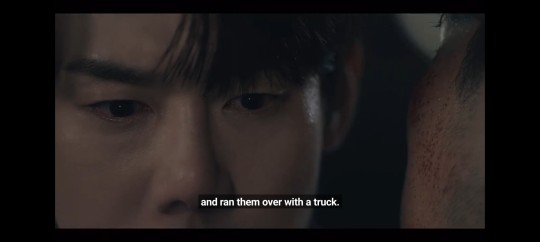
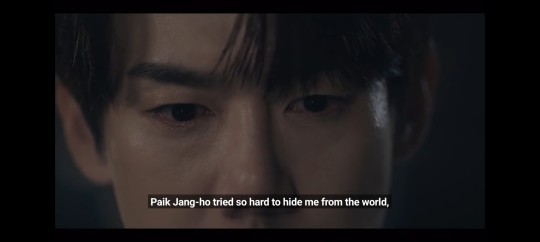
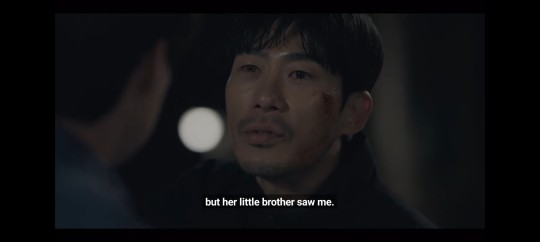
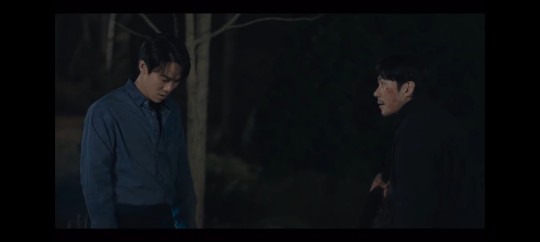

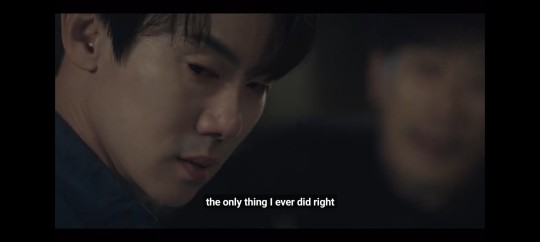
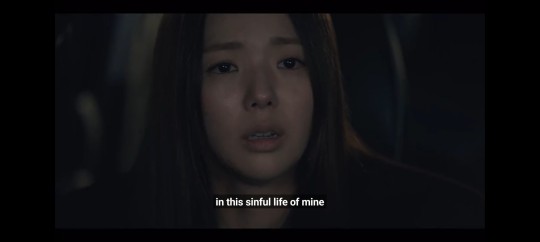
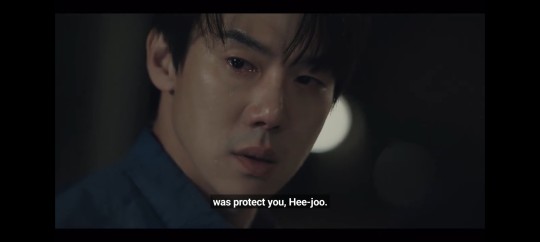
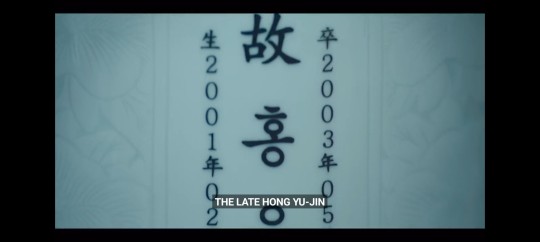

😭😭
#2025#korean drama#ep12#finale#when the phone rings#mbc#mbc drama#park jae yoon#yoo yeon seok#paik sa eon#hong hee joo#brother#chae soo bin#killed#truck#father#secret#info#protect
10 notes
·
View notes
Text


e5 & e9 sa-eOGn sitting in a similar (the same?) dinghy as the one used to drown him, in what looks like the same spot...intense stuff
3 notes
·
View notes
Text
Some background on South Korean politics in light of the 12.3 self-coup attempt
At 10:23 PM on 12.3, President Yoon Suk-yeol (Yun Seokyeol) declared martial law. The Korean people and MPs immediately mobilized to stop it. Although a group of special forces stormed the Parliament building and tried to break up legislative activity, 190 MPs made it into the chamber and voted only two hours later to rescind martial law. Soon after that, Yoon agreed to end martial law and the military officially stood down.

This was a bizarre and shocking few hours for everyone in the country and the world, and how Yoon got to the point of making this absurd decision is an interesting story. To tell it, I'll try to explain 1) South Korea's history of military rule, 2) Yoon's prosecutorial and political career, 3) the main opposition Together Democratic Party, and 4) Yoon's presidency. And finally, 5) what the self-coup attempt means for South Korea and the world.
I'll try to be brief as I can, but I'm starting from the assumption that most people know very little about South Korean politics. So, it's a long post.
Military rule
After fascist Japan surrendered at the end of WW2, it handed over power in the occupied Korean peninsula to an indigenous government called the People's Republic of Korea. Unfortunately, the new government was brutally suppressed by the US military in the South and warped into unrecognizable form by the Soviet Union in the North. In the South, the Republic of Korea was established as a US-aligned anticommunist dictatorship. Everything in this summary is extremely simplified, but suffice it to say that the Republic of Korea, or South Korea, more or less remained an anticommunist military dictatorship until 1987.

(One of the less graphic pictures of the Bodo League massacre, where the South Korean police and military killed 200,000 civilians)
Military rule in South Korea was founded on protecting South Korean capitalists, many of which had accumulated their wealth under the Japanese occupation, from the dual threats of leftists in South Korea and North Korean attack. South Korea retained the vast majority of colonial police employed by the occupation government, whose main purpose had been to root out and destroy independence guerillas, and repurposed them to root out and destroy left-wing guerillas (many of which were the same people). This caused an extraordinary level of state violence in early South Korean history. The South Korean prosecution service was similarly used to find and imprison or kill the opposition. Due to their function as part of an authoritarian state, the prosecution service was given broad powers to both investigate and prosecute.
Especially after President Park Chung-hee (Bak Jeonghui) took power (by overthrowing another short-lived democratic government), the South Korean state's purpose became not only to protect capital, but also to direct its expansion. The South Korean state used its control over credit to make companies invest in sectors that it predicted would have great export potential. Once a company established itself in a sector, the state directed it to use the profit it got from exports to invest in another, more capital-intensive sector. Over decades, this strategy led to enormous economic growth for South Korea and a massive rise in living standards. It also caused a few companies in particular to become fantastically wealthy global megacorporations. These are the chaebols (jaebeol), which include Samsung, Hyundai, LG, and others.
By 1987, a series of massive democratic protests and uprisings finally ended the dictatorship. A free election was held, and a general named Noh Tae-woo (No Taeu) was elected president. In the new democratic era, the conservative movement was formed as an alliance of dictatorship figures like Noh, chaebols, small businesses, and white collar workers who wanted to continue the economic policies of the dictatorship. The democratization movement continued as various incarnations of the Democratic Party (South Korean political parties change names and split and merge constantly), made up of unions, civil society activists, and students. Leftists have continued to be a minor force in South Korean politics, but for the purposes of this post I'll mostly set them aside. The main groups we're concerned with are conservatives and democrats, organized into a constantly shifting mush of political parties.
Supreme Prosecutor of the Republic
Before he became president, Yoon Seok-yeol was the Supreme Prosecutor of the prosecution service. To understand the significance of this, we have to take a look at the prosecution service in the democratic era and the political environment that Yoon emerged into.
During the dictatorship, everyone hated the police. So after the dictatorship, South Korea thoroughly reformed and defanged the police. This was a genuine success of the democratization movement. The police were turned from a gang of brutal thugs into an organization that almost never uses guns and is known for getting yelled at and beaten up by random citizens. If you hit a South Korean cop, the cop might be punished for annoying you. (Though the situation is different for ethnic minorities and striking workers.)
On the other hand, the prosecution service was left mostly untouched. While it obviously was no longer used for open political repression, it largely retained its broad investigative powers and personnel.
To put it simply, the prosecution service is an authoritarian holdover inside a democracy. It justifies its powers by being a hammer against the most powerful members of society. In South Korea, it's common for politicians of all parties to have their houses raided or be put in prison. This happens regularly even to former presidents, and even to some of the wealthiest people in the world, the heads of the chaebols. These things are unthinkable in most Western democracies. Whether you think these powers are justified or not, they've led to the prosecution service having far more active influence over politics than prosecutors in most democracies. As far as the prosecutors were concerned, that made them the heroes of this story.
These things came to a head in 2016 with conservative President Park Geun-hye (Bak Geunhye). Due to a series of massive scandals, Park had become extremely unpopular, with her approval rating hovering at 30 percent. What put the nail in the coffin for Park was an investigation by a prosecutor named Yoon Seok-yeol. Yoon exposed bizarre corruption involving President Park, Samsung, and a cult that had been involved with her family since the presidency of her father, Park Chung-hee. This led to massive protests and Park Geun-hye's impeachment.
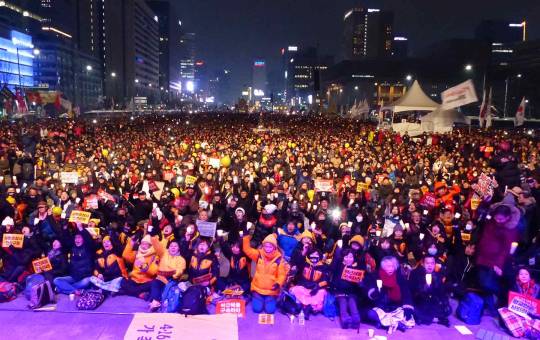
(2016 Candlelight Protests)
The president who succeeded Park, Moon Jae-in, promoted Yoon within the prosecution service. At his new position, Yoon prosecuted and imprisoned Park, as well as another conservative former president. At this point, he was becoming a major public figure, popular among democrats and hated among conservatives. So President Moon promoted Yoon again, this time to Supreme Prosecutor of the entire service.
And then, Yoon started investigating Moon's own justice minister. This led to a public dispute. Moon's government looked corrupt and hypocritical, and Yoon became more popular than ever. Soon, Yoon resigned his office and entered the conservative presidential primary.
Of course, conservatives welcomed Yoon's entry, and he won the primary and the presidency. But how did they go from hating him for destroying their president to fighting to get him elected? How did Yoon go from prosecuting a corrupt conservative to being one?
The reason for the switch from Park to Yoon lies in their political brands.
Park Geun-hye's brand was built on nostalgia for her authoritarian father. Many older South Koreans associate Park Chung-hee's regime with stability, rational economic management, and anticommunism. At the same time, even most conservative voters hate actual authoritarian behavior. All South Koreans have either lived under military dictatorship or have heard from their family what it was like, and almost nobody is eager to return. Once Park Geun-hye's corruption and inept attempts at election manipulation were revealed, she was finished.
This is why conservatives welcomed Yoon Suk-yeol into their party: they needed him to wash their hands of corruption. He was a rebirth of authoritarian discipline made acceptable by his prosecution of unpopular conservatives. His message was law and order: if we lock up the corrupt, criminals, and communists, the country can be saved from ruin. If we push workers harder (by increasing work hours), economic growth will continue. If we push women harder (by forcing a return to traditional gender roles), the birth rate will return to normal. And, of course, the chaebols should be deregulated and given tax cuts.
Together Democratic Party
Before we pick things back up with Yoon, his main opposition is worth a look. This is the Together Democratic Party, which along with other opposition parties blocked the declaration of martial law and is now pushing for Yoon's impeachment.
We can summarize the Democratic Party's traditional and typical outlook in the figure of President Moon Jae-in (Mun Jaein). This was Park Geun-hye's main rival and the president who promoted Yoon Seok-yeol. He can be considered something like the "Korean Barack Obama". He was liked by democrats and called a dangerous communist by conservatives, but he didn't do all that much in reality other than raising the minimum wage, reducing the workweek, and attempting diplomacy with North Korea. He is now generally liked because things felt normal, he handled the COVID-19 pandemic well, and he didn't make any earth-shattering mistakes. He's the only living president not to be imprisoned after leaving office.
For decades, the Democratic Party was this type of moderate reformist, center-right party. However, in just the past few years, the party has gone through a considerable transformation.
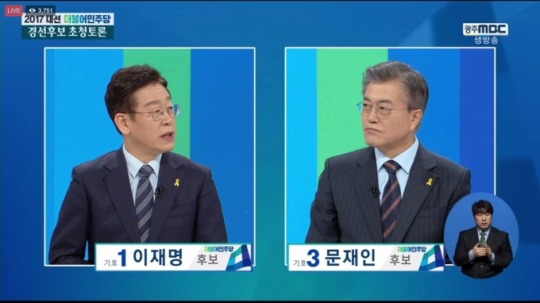
(A 2017 Democratic presidential primary debate, with Lee on the left and Moon on the right.)
The Democratic Party has now unquestionably become the party of a person named Lee Jae-myung (Yi Jaemyeong), who was elected party leader in 2022. He's been called the "Korean Bernie Sanders", and this label is at least somewhat accurate.
Like Bernie Sanders, Lee Jae-myung can be characterized as a radical social democrat. His policies could actually be characterized as more radical than Bernie Sanders'. As the governor of Gyeonggi Province, Lee introduced a youth basic income and experimented with universal basic income. As a national political figure, Lee pushes for what he calls his "Basic Society" policies. These include universal basic income, youth basic income, universal basic housing (by massively expanding public housing), expanding free healthcare coverage to nursing, free meals for seniors, and a four day workweek. In general, Lee criticizes means-tested welfare and advocates for universal programs that guarantee a baseline standard of living by right.
On the other hand, Lee could also be characterized as less radical than his policies would imply. A common criticism, which ironically comes from both conservatives and leftists, is that he doesn't often talk about how to pay for his policies. Conservatives see this as a sign of irresponsible populism and economic illiteracy, while leftists criticize him for not naming the enemy. Unlike Bernie Sanders, Lee doesn't rail against chaebols or inequality or push for taxes on the rich. He also tends to appeal to questionable technology like AI rather than collective action. So although Lee champions some genuinely radical policies, he certainly isn't a socialist.
Lee's public image is also quite different from someone like Bernie Sanders. Lee is generally seen as a figure of questionable morality due to a constant conveyor belt of personal scandals and corruption allegations. He has been accused of, among other things, abusing his staff, having his brother involuntarily committed, illegally sending money to North Korea using an underwear factory, and having connections to organized crime. Lee's personal legal controversies have been the greatest source of instability for him and the Democratic Party since he became its leader.
In fact, Lee was recently convicted of lying while campaigning in one of his trials in November. Due to now having a criminal conviction, he is technically barred from running for office again. However, the conviction could still be overturned on appeal and recent events have really thrown everything up in the air. And even if Lee himself can't run for office, his ideology has taken over the Democratic Party and it's likely that whoever succeeds him will share it.
So, Lee Jae-myung is the nemesis that Yoon Seok-yeol has been fighting for his whole presidency. A criminal versus a prosecutor. Universalism versus austerity. Relief versus discipline.
Yoon Suk-yeol's presidency
Finally, we return to President Yoon. Though even as a prosecutor he was a figure of questionable intelligence, as a politician he's revealed himself to be one of the most inept people in modern history.
Since the beginning of his term, Yoon has been unable to do nearly anything at all domestically. The Democratic Party already had a majority in Parliament at the beginning of his presidency, and so Yoon has been unable to enact literally any part of his legislative agenda. Instead, he was reduced to calling young people lazy, bemoaning the far too short workweek, and wishing he could cut welfare.
In April of 2024, parliamentary elections were held. Lee Jae-myung, Democratic party leader, used the primary process as an opportunity to purge the party of centrists. Despite the Democratic Party's parliamentary candidates being further left than they'd ever been, opposition parties expanded their hold over the Parliament and nearly won a supermajority. After their victory, Lee Jae-myung was reelected as party leader and Basic Society advocates were elected to every seat on the party's supreme council. The Democratic Party emerged more left-wing, more ideologically unified, and more powerful than it ever had been before.
Now that Lee's Basic Society ideology had consolidated its hold on the Democratic Party and the Parliament, the Parliament began trying to pass its agenda in earnest. The Parliament passed bills establishing an experimental UBI, preventing companies from suing workers for striking, and expanding labor protections to subcontractors, among others. Over and over, Yoon vetoed them. Yoon has vetoed 19 bills and pocket-vetoed 4 more, more than every other South Korean president combined.
Both Yoon and the Parliament accused each other of being obstructionists. The problem for Yoon was that the Parliament's policies were popular, while his policies were unpopular. As Yoon issued more and more vetoes, his approval rating only fell.

(A political cartoon by Bak Sunchan depicting Yoon as a lame duck saying "veto")
Without the ability to change domestic policy, Yoon put all of his energy into foreign policy. Due to their history and composition, conservatives want to maintain trading links with other developed countries and developing countries for the chaebols to export to, want to maintain anticommunist alliances with the US and Japan, and are hostile to North Korea. (Participation in this system is what led the South Korean military to commit atrocities in Vietnam.) Democrats are somewhat skeptical of both the US and Japan, and want reconciliation with North Korea. Yoon has been strengthening relations with the US and Japan, sending weapons to Ukraine, and taking a hard line against North Korea.
Although several of these efforts were unpopular, the most significant has probably been Yoon allowing Japan to list the Sado gold mine as a UNESCO World Heritage Site. Before Yoon, South Korea had been blocking this because the site failed to mention the thousands of Korean slaves forced to work in the mine during WW2.
So, the two years of Yoon's presidency had so far consisted of Yoon obstructing popular reforms while failing to pass unpopular reforms and engaging in unpopular war crime denialism. He was generally regarded as impotent, laughable, and annoying. And at the same time, allegations of Yoon's own corruption grew louder and louder.
Yoon's wife is accused of taking bribes and meddling in the conservative primary. Yoon's friend, a Marine Corps officer, is accused of negligence that resulted in a young conscript's death. Yoon is accused of using his friends in the prosecution service to interfere with both investigations. As these scandals grew, the Parliament passed bills appointing special prosecutors independent from the prosecution service to investigate them. Many of Yoon's vetoes were of these special prosecutor bills.
Since the parliamentary elections in April, Yoon has been stuck in a vicious cycle. The Parliament passes popular legislation and Yoon vetoes it. Yoon's approval rating falls. The Parliament passes a bill to investigate Yoon and Yoon vetoes it. More information and leaks about Yoon's corruption come out. Yoon's approval rating falls, eventually to 18 percent. Afraid of the public pressure, more conservative MPs distance themselves from Yoon.
It seemed inevitable that eventually, enough conservative MPs would defect to override Yoon's veto and appoint a special prosecutor. A special prosecutor would find evidence of Yoon's corruption. The public would grow only angrier with Yoon. The only road left would be impeachment and imprisonment, just like Park Geun-hye. Yoon bashed his head against the wall, unable to find a way out.
Clearly, somewhere in this pile was the final straw. On 12.3 at 10:23 PM, Yoon Seok-yeol turned on the camera and vomited blood.
So, what does the coup mean?
The declaration of martial law was so bewildering because it felt like it came out of nowhere. But that's not strictly true; the Democratic Party had been warning that Yoon was plotting to declare martial law for months. Most people dismissed this as a conspiracy theory, including myself. It was simply too far-fetched and illogical to contemplate, until it happened.
But the real reason it felt like it came out of nowhere was because, at the same time, it did. Not even Yoon's most devoted supporters were thinking about martial law. Apparently, everyone from the leader of Yoon's party to the Ministry of Defense to his own prime minister was caught totally by surprise. He circulated no conspiracy theories in advance, and not a single news network attempted to justify his actions. He had no cult of personality and no party ready to fall unquestioningly behind him. In short, he acted essentially alone. As soon as people rose up in defiance, he had no choice but to back down.
It's a good sign for South Korean democracy that the people defeated the self-coup attempt so quickly and decisively. But compare the political environment with that of other countries. How normal has authoritarianism become? How many people openly wish for a dictator? How subservient are the cabinet officials and the news networks? How cultlike are the major parties and how acquiescent is the opposition? These conditions make a country much more vulnerable to a ruler with authoritarian instincts. And we should expect authoritarians to act in creative and unprecedented ways.
The self-coup is an explosion of the authoritarian tendencies that have been bubbling under the surface of the conservative movement since the end of military rule. It's a decisive discrediting of Yoon's prosecutorial brand, which had been conservatism's last hope to maintain the people's trust. Yoon's impeachment and imprisonment are all but guaranteed. And the general consensus among both democrats and conservatives now is that Yoon's blunder has killed conservatism in South Korea for at least the next decade.
In fact, the 12.3 declaration of martial law might really have been a successful self-coup. In that the conservatives have removed themselves from power. And the death of the right is a golden opportunity that Korean leftists must seize. If Lee Jae-myung's Democratic Party becomes politically dominant, it must be challenged from the left to properly name the enemy. If the Basic Society policies become normalized, the left should treat them as common sense and demand more. When people become disenchanted with the democrats, the left must be ready as their competitor and obvious alternative, not the right.
Could South Korea see a new era of competition between a socialist left that wants to finally do away with the chaebols, a social democratic center that merely wants UBI, and a nonexistent right?
Maybe. Probably not. But a new world of possibilities has opened up.
#south korea#yoon suk-yeol#politics#news#12.3#martial law#lee jae-myung#park chung-hee#park geun-hye#korea#moon jae-in#democratic party#authoritarianism#coup#history
280 notes
·
View notes
Text
Shout out to losercore, pathetic boys in love has to be one of my favorite genders lol
#byeon woo seok#lovely runner#kidnap sun jae and run#kim taesung#kim hye yoon#sun jae#im sol#doctor slump#park hyungsik#park shin hye
429 notes
·
View notes
Text
BEST KDRAMA 2024 ✨ pt2
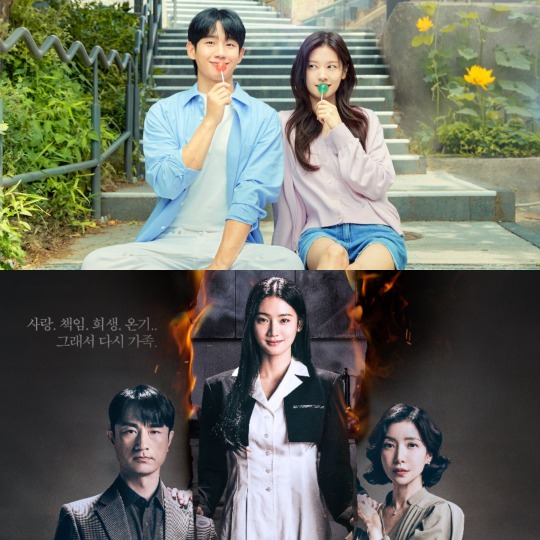

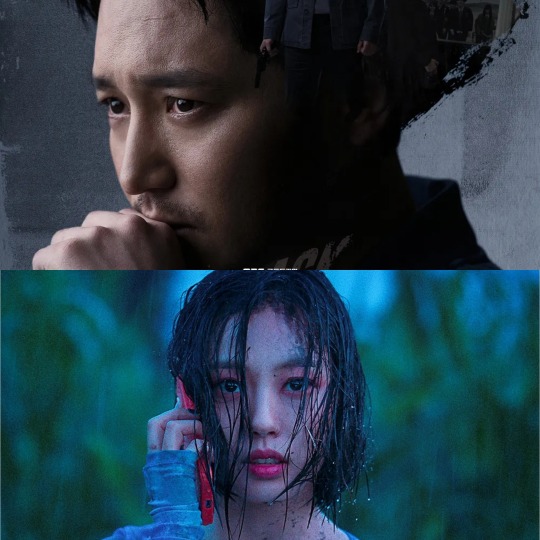
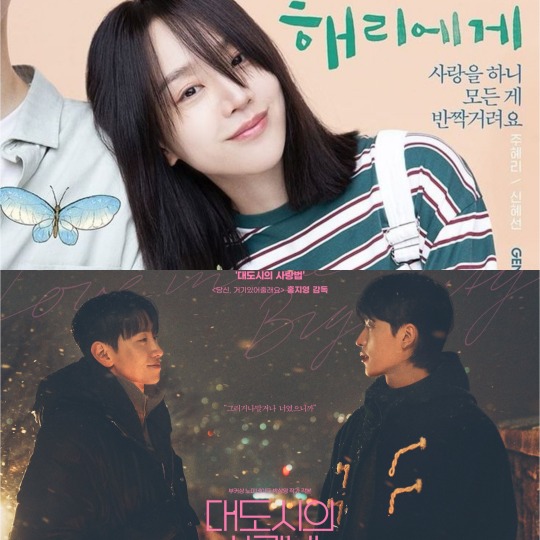

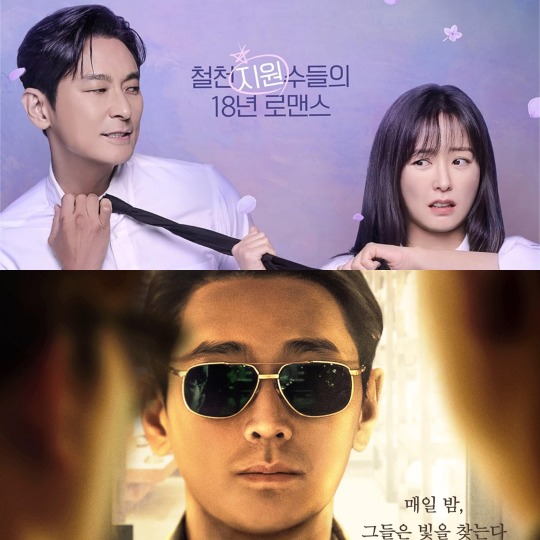
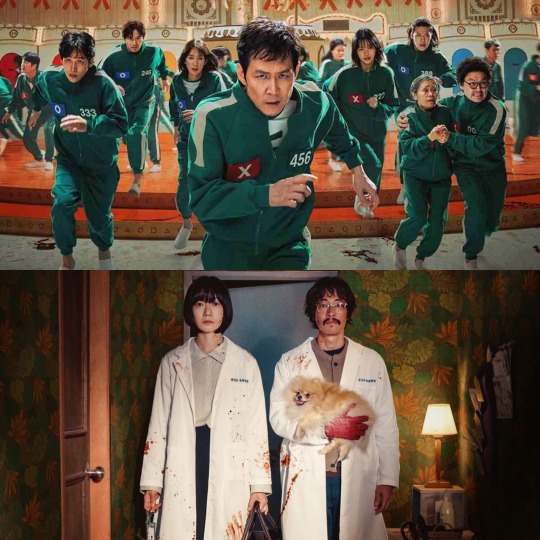
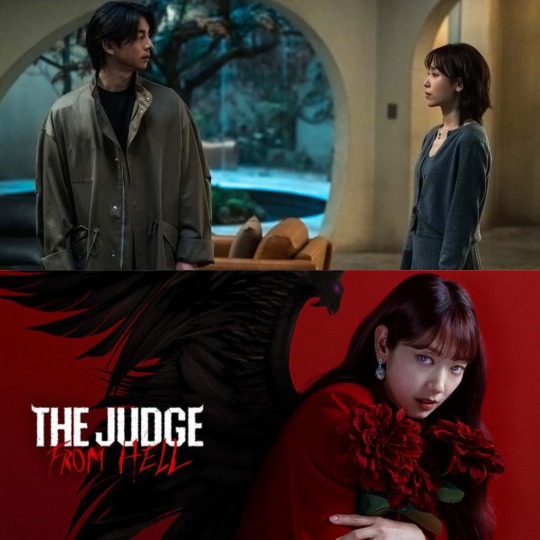
We have been blessed with so many good stories!! Which one did you enjoy the most? ☺️☺️🌈
#kdrama 2024#love next door#jung hae in#jung so min#perfect family#no gain no love#shin min ah#queen woo#black out#the frog#the judge from hell#park shin hye#dear hyeri#shin hye sun#lee jae wook#love in the big city#nam yoon su#mr plankton#woo do hwan#when the phone rings#yoo yeon seok#chae soo bin#love your enemy#joo ji hoon#light shop#squid game 2#family matters#the trunk#gong yoo#seo hyun jin
94 notes
·
View notes
Text


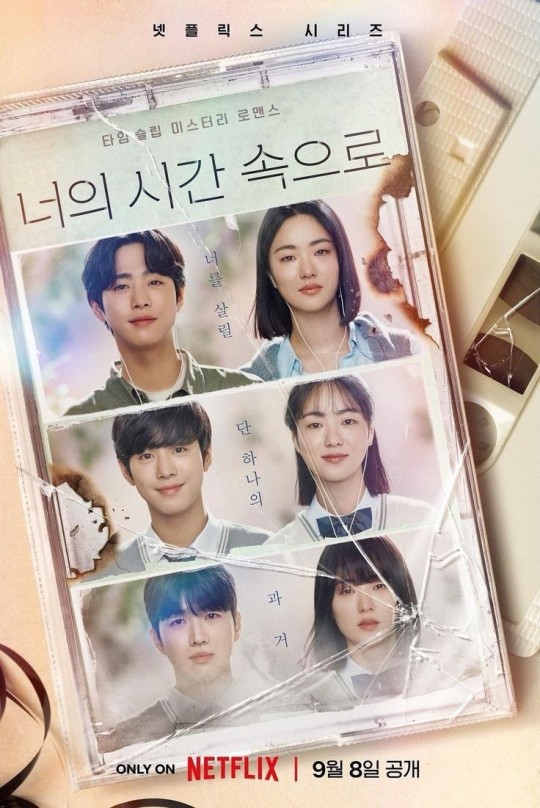

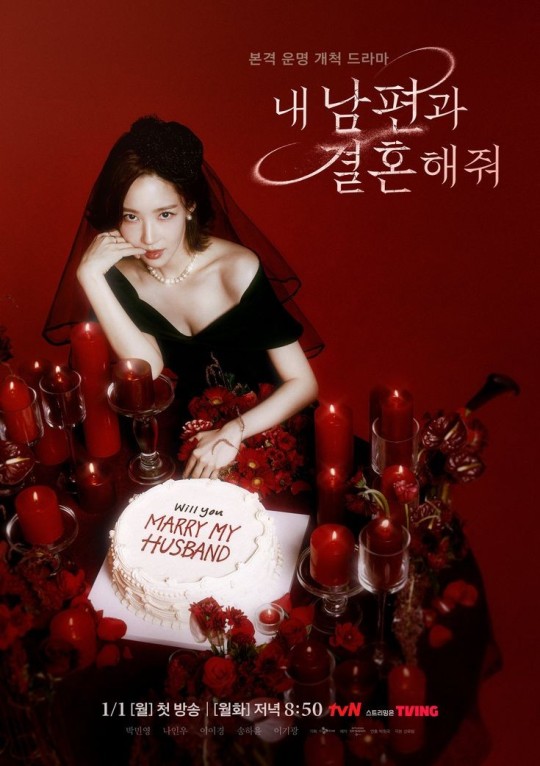
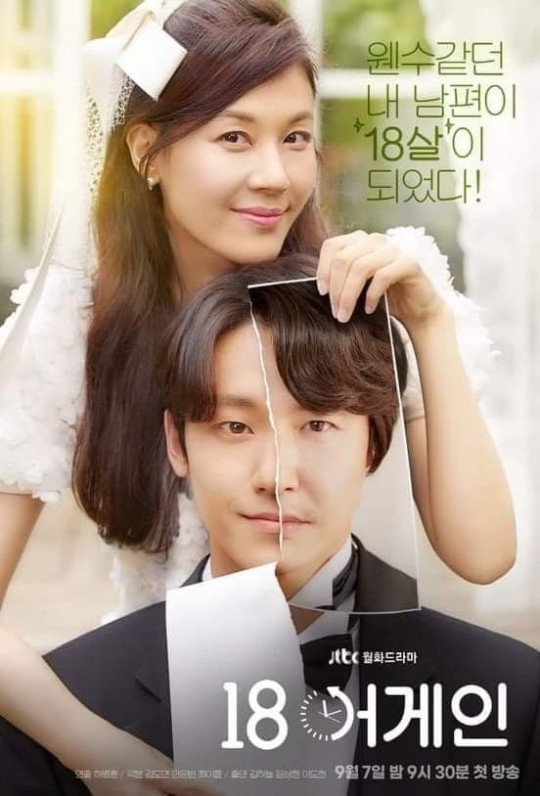
Time travel excellency in k-dramas.
(🎞️ : lovely runner, twinkling watermelon, a time called you, blue birthday, marry my husband, 18 again)
#lovely runner#blue birthday#marry my husband#18 again#a time called you#twinkling watermelon#kdrama#time travel#the genre is time travel and its supremacy#byeon woo seok#kim hye yoon#ahn hyo seop#jeon yeo been#kim yerim#hongseok#park min young#na in woo#ryeoun#seol in ah#shin eun soo#choi hyun wook#lee do hyun#jeongeui#ryu sun jae#im sol
278 notes
·
View notes
Text
Who would win in a fight? - among (some of) the characters played by Park Sunghoon

Cho Hyun-ju (Squid Game 2) => Ex-special forces who deserves the entire world 🥺
Verdict: She's thoroughly beating all of their asses, honestly, I don't make the rules :) She's for the girls and she will not let these men spew their crap (she'll team up if they're nice tho)
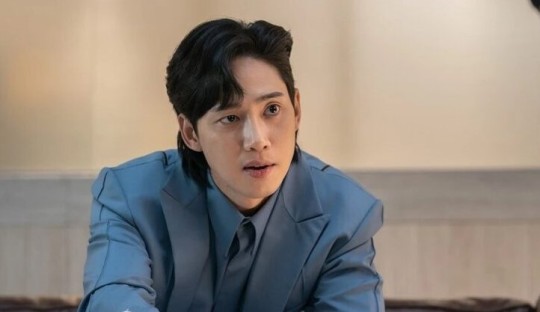
Jeon Jae-jun (The Glory) => Tiny selfish colourblind misogynistic abusive arrogant insufferable little bastard
Verdict: This pathetic man cannot fight, he just knows how to run his mouth and be a piece of shit - also, don't say to his face that he's colourblind, or he'll whack your kneecaps off

Yoon Eun-sung (Queen of Tears) => An obsessive sociopath who is also an unstable man wielding a shotgun on his really bad days
Verdict: Will not win the fight but will be dangerous if given a shotgun or rifle, or anything he can use to try and shoot his one-sided love with

Seo In-woo (Psychopath Diary) => Being gay and committing crime: wet little meow meow who also happens to be a manipulative serial killer with a self-pitying inferiority complex
Verdict: Also dangerous if given a shotgun, fortunately, he is from a romcom and will therefore miss every shot he fires

Go Jin-cheol (Mad Dog) => Essentially a slimy weasel of a life insurance scammer and murderer for hire
Verdict: Doesn't hold a candle to any of the other mofos in the fight and will lose as soon as the fight starts - if able, he would try to team up with the rich bastards first, because he is a greedy sob

Eun Jae-won (Not Others) => Station director just trying to do his job, has way too much shit to deal with
Verdict: He shouldn't have to be in this fight at all, because he's already bruised up, but he had to follow the actual criminals - he likely teams up with Hyun-ju, so he wouldn't lose at least
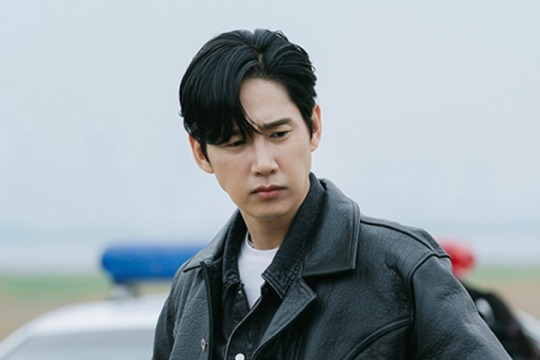
Park Sang-yoon (The Kidnapping Day) => A detective that I don't think fully follows the rules while investigating, but good for him I guess, it works out in the end 👍
Verdict: Can surely keep up in the fight, he has received training, after all - but he would most likely also team up with the non-criminals
(Ps. I haven't fully seen all of the shows above, but I wanted to introduce some of Park Sunghoon's other roles. I knew him from Psychopath Diary, which is one of my favourite dramas. He is also known for his roles in Into the Ring and My Only One)
#squid game s2#cho hyun ju#the glory#jeon jae jun#park sunghoon#psychopath diary#seo inwoo#queen of tears#mad dog#not others#the kidnapping days#kdrama#yoon eun sung#hyunju would absolutely beat their asses#happily too#skylerbluexd posts
62 notes
·
View notes
Text



There is something incredible about a love that transcends the boundaries of time, space, dimension, life, disease and death. A love where one would willingly relive their darkest trauma, again and again, just to save the one who taught them the meaning of life. A love where one runs toward death itself to shield the one who once sheltered them from the rain. A love that dares to bend the laws of society, defy the rules of heaven and hell, to protect the one they love. A love that pushes against the boundaries of reality, driven by an unyielding devotion, where one would lose, rediscover and redefine themselves, and learn to love themselves--all out of love for one. A love that is unshakeable, eternal, ethereal.
2024 in dramaland has been a rollercoaster ride.
#love game in eastern fantasy#the judge from hell#lovely runner#ding yuxi#yu shuxin#byeon woo seok#kim hye yoon#park shin hye#kim jae yeong#east asian drama#cdrama#chinese drama#kdramas#2024 may have been a mess otherwise#but it gave me three incredible stories#I'm still here sobbing
42 notes
·
View notes
Text
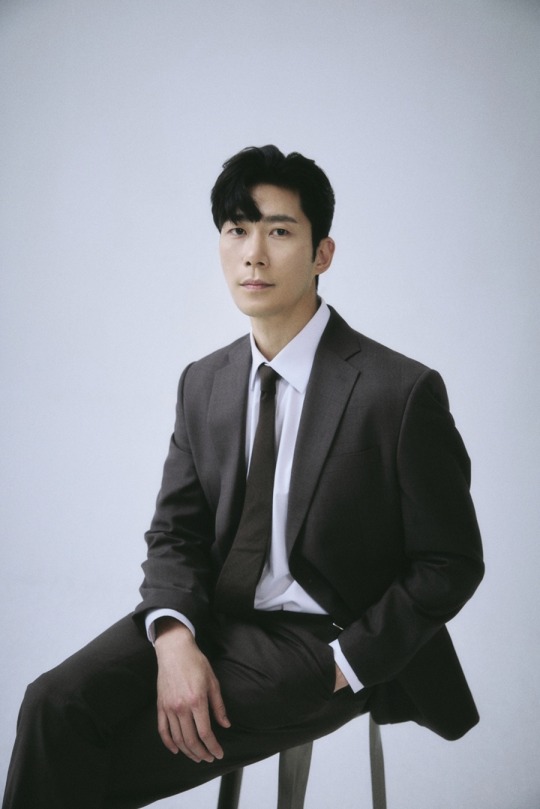
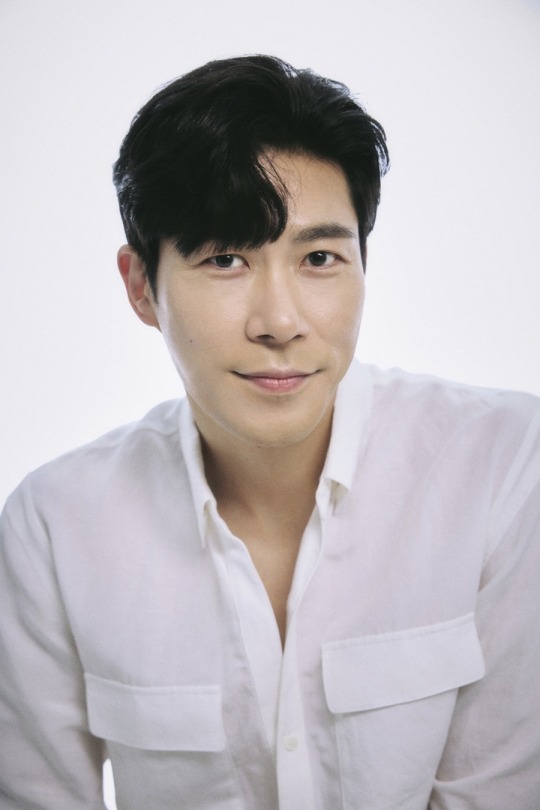
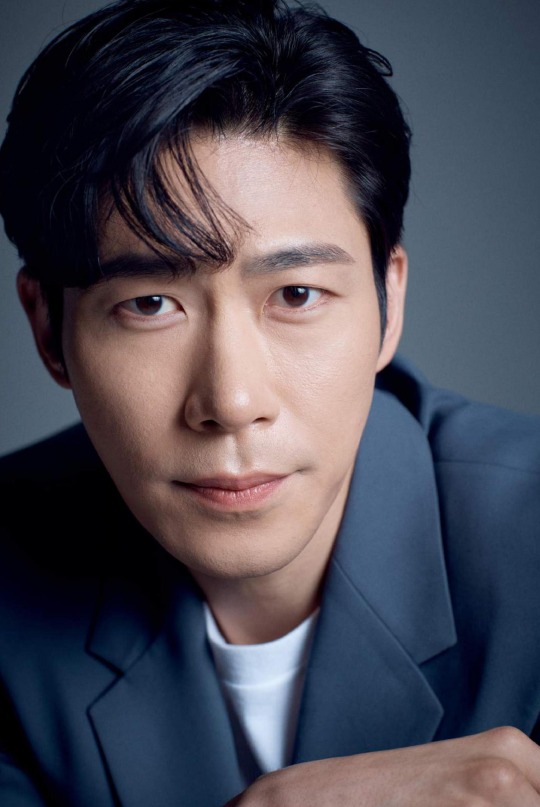
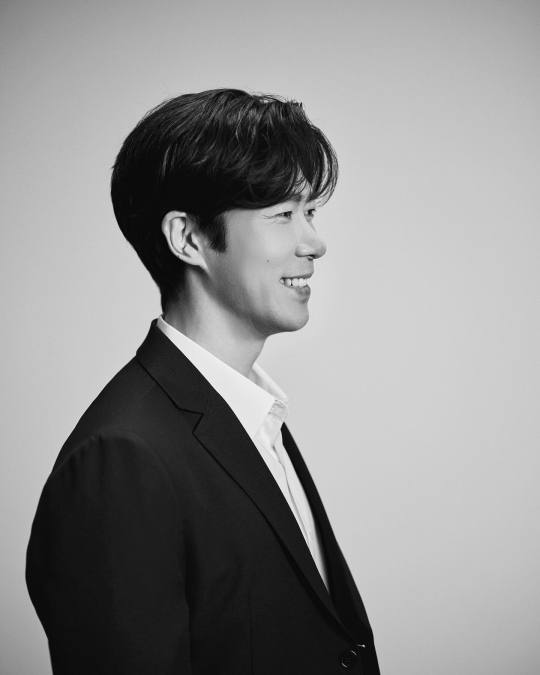
24 notes
·
View notes
Text
CK x League of Villains














John Kreese as All for One
Kwon Jae-Sung as Shigaraki
Robby Keene as Dabi (We all Know why he is Dabi)
Tory Nichol as Toga
Yoon Do Jin as Spinner
Kyler Park as Twice
Zara Malik as Mr Compress (Mostly due to their performative nature)
#cobra kai#my hero academia#boku no hero academia#john kreese#all for one#kwon jae sung#shigaraki tomura#robby keene#dabi#touya todoroki#tory nichols#toga himiko#yoon do jin#spinner#kyler park#twice#zara malik#mr compress
26 notes
·
View notes
Text
Watch this >>> 주말연석극 EP.117 [https://www.youtube.com/watch?v=kMHD5vZLjt4&t=465s]
9 notes
·
View notes
Text
Ep11 when the phone rings(9)

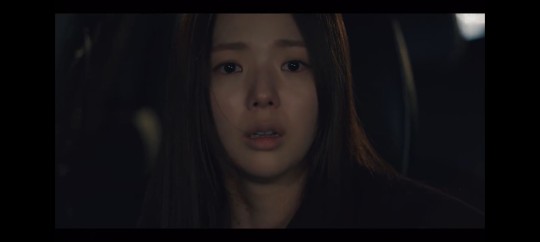
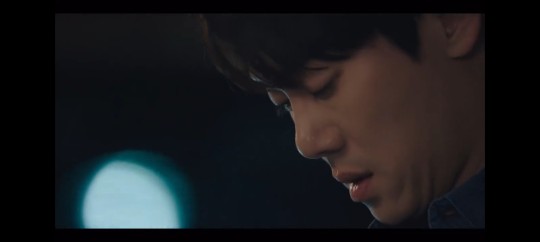
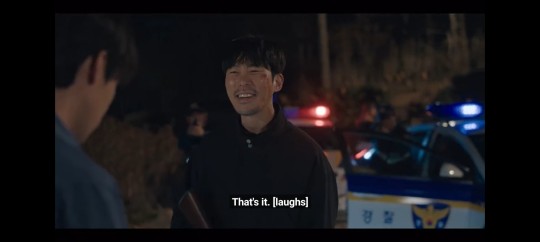
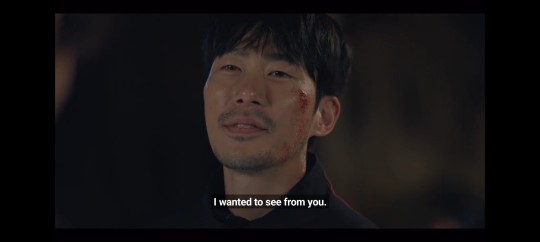
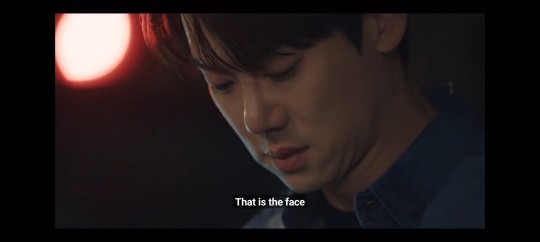
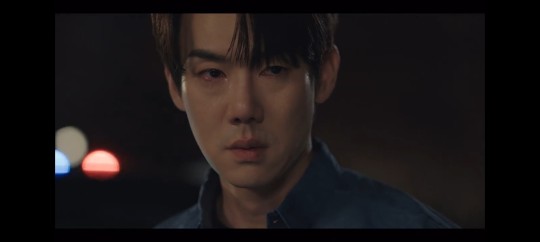
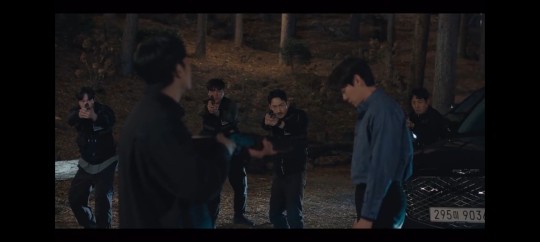
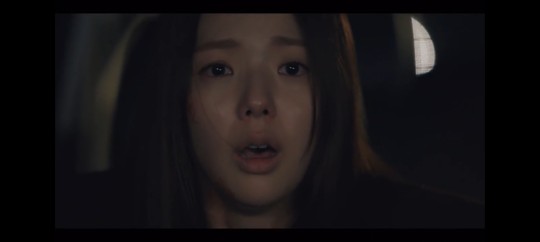
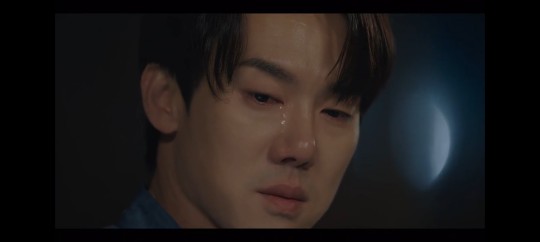
And he was looking at hee joo😭 I think it's related to hee joo..if it's about the accident..it's not your fault love..it's your father fault😭
And the gunshot??? Who shot it? Real paik sa eon or the police😨😰
#2025#korean drama#ep11#when the phone rings#mbc#mbc drama#yoo yeon seok#park jae yoon#chae soo bin#hong hee joo#fake#real#paik sa eon#secret#related#accident#fault#gunshot
14 notes
·
View notes